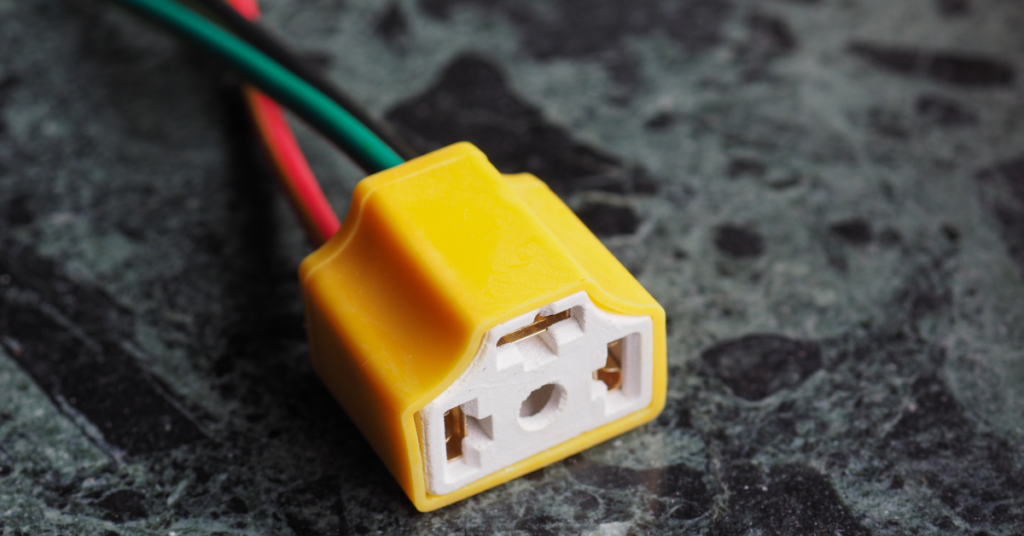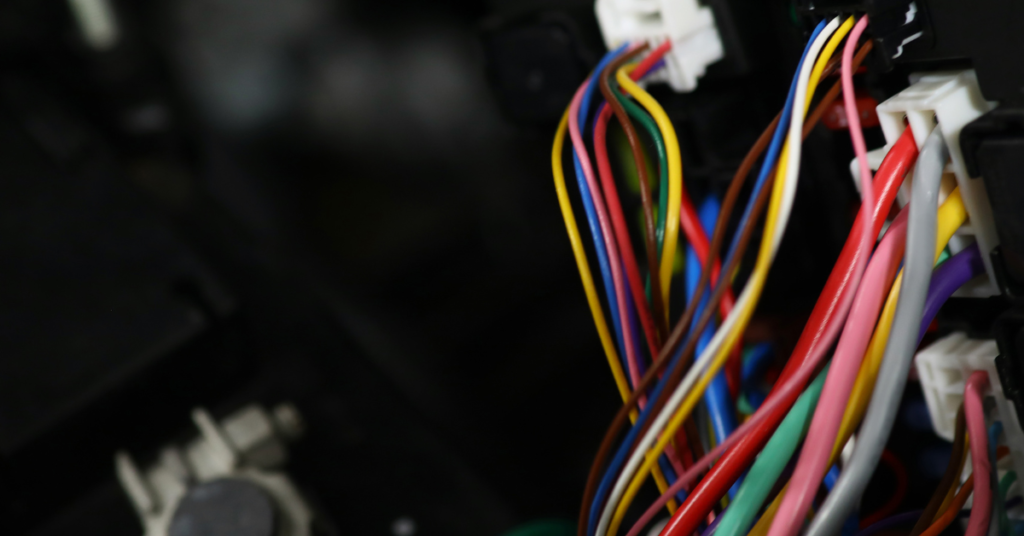
Lost Communication with ECM/PCM refers to a diagnostic trouble code (DTC) encountered in automotive systems when the onboard computer (ECM/PCM) loses connection or communication with various control modules within the vehicle.
The ECM (Engine Control Module) or PCM (Powertrain Control Module) plays a crucial role in managing and coordinating various functions within a vehicle, such as engine performance, emissions control, and transmission operation.
When the system detects a loss of communication, it indicates a disruption in the exchange of data between the modules, potentially impacting the vehicle’s performance, and leading to difficulties in monitoring and controlling key functions.
Understanding and diagnosing this issue is vital in maintaining the proper functionality of the vehicle’s systems.
Contents
- 1 Common Causes of Lost Communication with ECM/PCM
- 2 Common Cars That Face Lost Communication with ECM/PCM
- 3 Conclusion
- 4 FAQs
- 4.1 What does “Lost Communication with ECM/PCM” mean in a vehicle?
- 4.2 What causes the “Lost Communication with ECM/PCM” error in a car?
- 4.3 How is the “Lost Communication with ECM/PCM” issue diagnosed?
- 4.4 Can a “Lost Communication with ECM/PCM” problem be fixed without professional help?
- 4.5 What are the potential consequences of ignoring the “Lost Communication with ECM/PCM” error?
Common Causes of Lost Communication with ECM/PCM
Lost communication with the Engine Control Module (ECM) or Transmission Control Module (TCM) can be attributed to several common causes in modern vehicles.
Faulty Wiring or Connections

Faulty wiring or connections play a critical role in disrupting the communication between the TCM and ECM.
Corrosion, loose connections, or physical damage in the wiring are potential culprits that must be thoroughly inspected for any signs of deterioration.
These issues often lead to communication breakdowns between the modules.
Faulty Control Modules
Additionally, malfunctioning control modules, whether it’s the TCM or ECM, are known triggers for communication problems. These modules are responsible for data transmission and reception, and any issues with them can manifest as the U0100 code.
Testing these control modules for proper functionality is an essential step in diagnosing the problem.
Power Supply Issues
Power supply problems also significantly impact communication. Inadequate or fluctuating power supply to the TCM and ECM, often due to a faulty battery, alternator, or other electrical components, can disrupt their communication.
It’s crucial to test the power supply thoroughly and rectify any issues before proceeding with further diagnosis.
Software or Programming Issues
Software or programming issues within the TCM or ECM can lead to communication failures. Outdated or corrupted software might necessitate software updates or reprogramming to resolve the problem.
Adhering to the manufacturer’s recommendations for software updates is crucial.
Other Electrical Faults

Furthermore, beyond TCM and ECM issues, faults in other electrical systems or components, such as sensors or actuators, can trigger the U0100 code, affecting the overall communication network and disrupting TCM-ECM communication.
A comprehensive diagnosis involves a thorough inspection and testing of all relevant electrical components to identify and resolve any issues impacting communication.
Common Cars That Face Lost Communication with ECM/PCM
Audi
When communication with the Engine Control Module (ECM) or Powertrain Control Module (PCM) in an Audi is lost, it can result in a range of performance issues.
It can lead to poor engine operation, reduced fuel efficiency, and warning lights on the dashboard.
BMW
When communication with the Engine Control Module (ECM) or Powertrain Control Module (PCM) is lost in a BMW, the vehicle may experience issues such as a loss of engine power, stalling, or erratic behavior.
This loss of communication can result from various reasons, including wiring issues, module failure, or software malfunctions.
Chevy
When communication is lost between the Engine Control Module (ECM) or Powertrain Control Module (PCM) in a Chevy vehicle, it can disrupt critical functions like engine performance monitoring and adjustment.
This loss of connection often leads to erratic engine behavior, including issues with starting, idling, and overall performance.
Dodge
When communication with the Engine Control Module (ECM) or Powertrain Control Module (PCM) is lost in a Dodge vehicle, it can lead to significant performance issues.
Loss of connection might result in the engine running erratically, warning lights illuminating the dashboard, and potential stalling or loss of power, requiring immediate diagnostic attention to rectify the communication breakdown and ensure proper vehicle function.
Ford
When communication with the Engine Control Module (ECM) or Powertrain Control Module (PCM) in a Ford is lost, it can lead to various performance issues, such as engine stalling, rough idling, or a sudden loss of power.
GMC
When communication with the Engine Control Module (ECM) or Powertrain Control Module (PCM) is lost in a GMC vehicle, it can result in a variety of issues.
This loss of communication can lead to poor engine performance, erratic transmission shifting, and a lack of diagnostic information for the vehicle’s onboard computer.
Honda
In some Honda vehicles, a loss of communication with the Engine Control Module (ECM) or Powertrain Control Module (PCM) can result in issues such as stalling, rough idling, or a lack of engine response.
This communication breakdown often triggers warning lights on the dashboard and may necessitate diagnostics by a qualified technician to identify and resolve the problem.
Hyundai
Loss of communication with the Engine Control Module (ECM) or Powertrain Control Module (PCM) in Hyundai vehicles can lead to significant operational issues.
It might cause a range of problems such as engine stalling, a lack of power, or irregular idling.
Jeep
Lost communication with the Engine Control Module (ECM) or Powertrain Control Module (PCM) in a Jeep can lead to significant performance issues.
When this occurs, it can result in a loss of vital engine data, causing erratic behavior, poor performance, and potential stalling.
Kia
When communication with the Engine Control Module (ECM) or Powertrain Control Module (PCM) in a Kia is lost, it can lead to significant performance issues.
The vehicle may experience erratic behavior, loss of power, or even failure to start.
Lexus
In a Lexus, a loss of communication with the Engine Control Module (ECM) or Powertrain Control Module (PCM) can lead to various issues.
This can result in a lack of real-time data exchange between the vehicle’s computer systems, impacting engine performance, transmission functionality, and overall vehicle operation.
Mercedes
Loss of communication with the Engine Control Module (ECM) or Powertrain Control Module (PCM) in a Mercedes can disrupt critical engine functions, leading to performance issues such as loss of power, irregular idling, or failure to start.
This breakdown in communication often triggers warning lights on the dashboard, necessitating a diagnostic check to rectify the underlying problem.
Mazda
When communication with the ECM/PCM (Engine Control Module/Powertrain Control Module) in a Mazda is lost, it can lead to various performance issues.
This loss of connection might result in erratic engine behavior, such as stalling, poor acceleration, or even the inability to start the vehicle.
Mitsubishi
In Mitsubishi vehicles, the loss of communication with the Engine Control Module (ECM) or Powertrain Control Module (PCM) can lead to various issues, such as engine stalling, rough idling, or a failure to start.
This loss of connection might trigger warning lights on the dashboard, indicating a malfunction within the vehicle’s control systems.
Nissan
When a Nissan vehicle loses communication with its Engine Control Module (ECM) or Powertrain Control Module (PCM), it can lead to various performance issues.
This loss of connection may result in erratic engine operation, failure of various sensors, and the triggering of warning lights on the dashboard.
Subaru
In Subaru vehicles, a loss of communication with the Engine Control Module (ECM) or Powertrain Control Module (PCM) can result in issues such as engine stalling, loss of power, or the vehicle not starting.
This breakdown in communication may stem from wiring faults, a faulty ECM/PCM, or connection issues.
Toyota
When a Toyota vehicle experiences lost communication with its Engine Control Module (ECM) or Powertrain Control Module (PCM), it can lead to various performance issues.
This disruption in communication can result in poor engine performance, reduced fuel efficiency, and even trigger warning lights on the dashboard.
VW
When a VW experiences a loss of communication with its Engine Control Module (ECM) or Powertrain Control Module (PCM), critical functions like engine management, transmission control, and emission systems may be affected.
This disruption can lead to a variety of issues, including engine stalling, rough idling, or a complete inability to start.
Volvo
When communication is lost with the Engine Control Module (ECM) or Powertrain Control Module (PCM) in a Volvo, various warning lights may illuminate on the dashboard, such as the check engine light or transmission warning light.
The loss of communication can result in erratic engine performance, potentially causing issues like rough idling, poor acceleration, or even stalling.
Conclusion
In conclusion, the loss of communication with the Engine Control Module (ECM) or Powertrain Control Module (PCM) in a vehicle is a critical issue that can lead to various operational malfunctions and an inability to properly control the engine’s functions.
This loss of connection could be caused by a range of factors, including electrical faults, wiring issues, or module malfunctions.
Timely diagnosis and resolution of this problem are crucial to ensure the vehicle operates efficiently, emphasizing the significance of regular maintenance and prompt attention to any signs of communication loss with the ECM/PCM to maintain the vehicle’s optimal performance and safety.
FAQs
What does “Lost Communication with ECM/PCM” mean in a vehicle?
This error message indicates a disruption in the communication between the Engine Control Module (ECM) or Powertrain Control Module (PCM) and the diagnostic scanner or other modules in the vehicle. It can affect the ability to monitor or control engine functions.
What causes the “Lost Communication with ECM/PCM” error in a car?
Several factors can trigger this issue, including faulty wiring, a loose connection, damaged modules, or a malfunction within the ECM/PCM. Corrosion, moisture, or physical damage to the communication lines might also lead to this error.
How is the “Lost Communication with ECM/PCM” issue diagnosed?
Mechanics typically use specialized diagnostic tools to identify the problem. They check for trouble codes, inspect the wiring and connectors, and conduct tests to determine whether the issue lies within the communication lines or the ECM/PCM itself.
Can a “Lost Communication with ECM/PCM” problem be fixed without professional help?
Some basic checks such as ensuring connectors are firmly seated and visible wiring issues can be addressed by vehicle owners. However, in-depth diagnosis and repairs often require specialized knowledge and tools, best handled by experienced technicians.
What are the potential consequences of ignoring the “Lost Communication with ECM/PCM” error?
Ignoring this issue might lead to erratic engine performance, reduced fuel efficiency, or even vehicle stalling. Additionally, other vehicle systems that rely on ECM/PCM data might be affected, leading to further complications if left unresolved.



